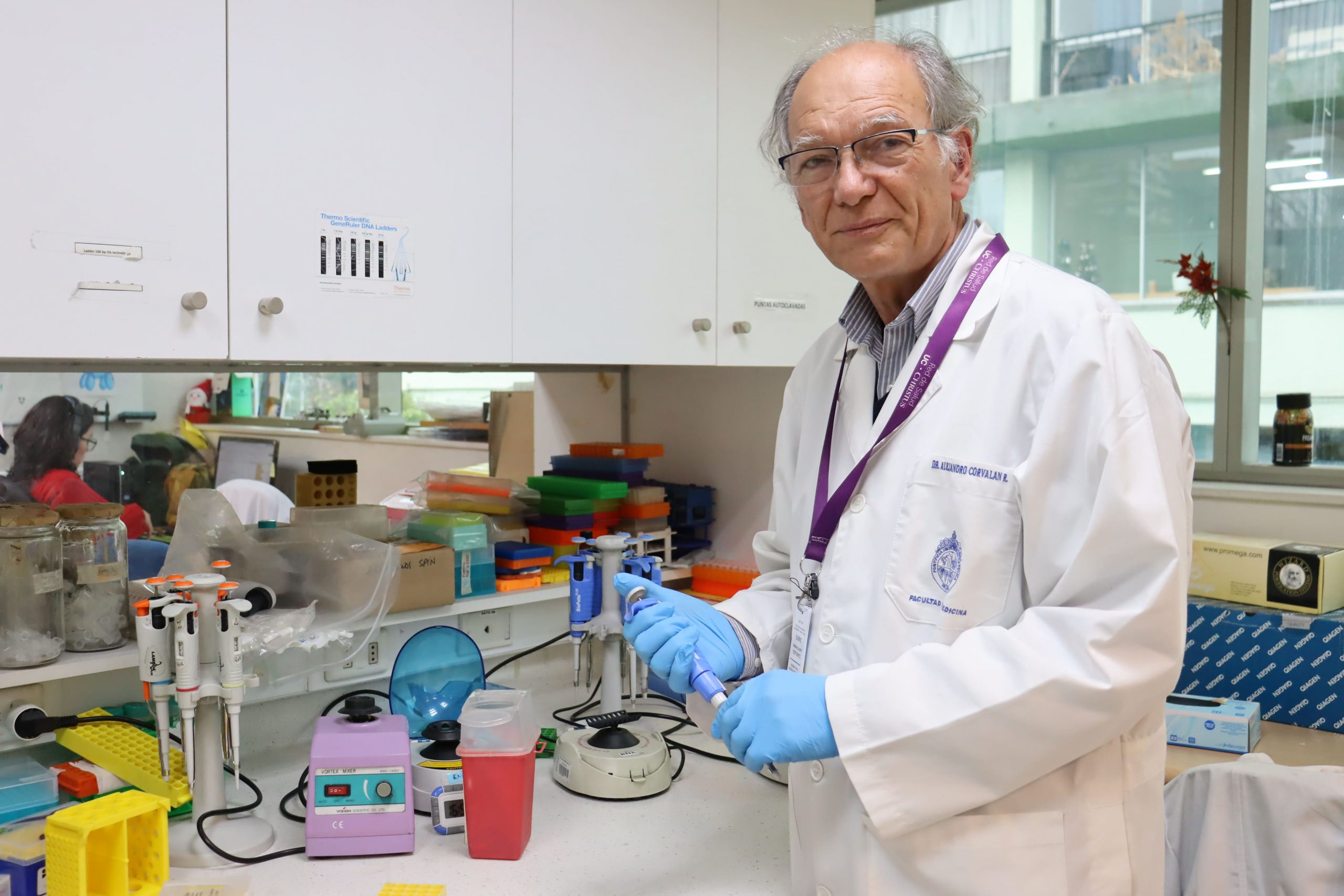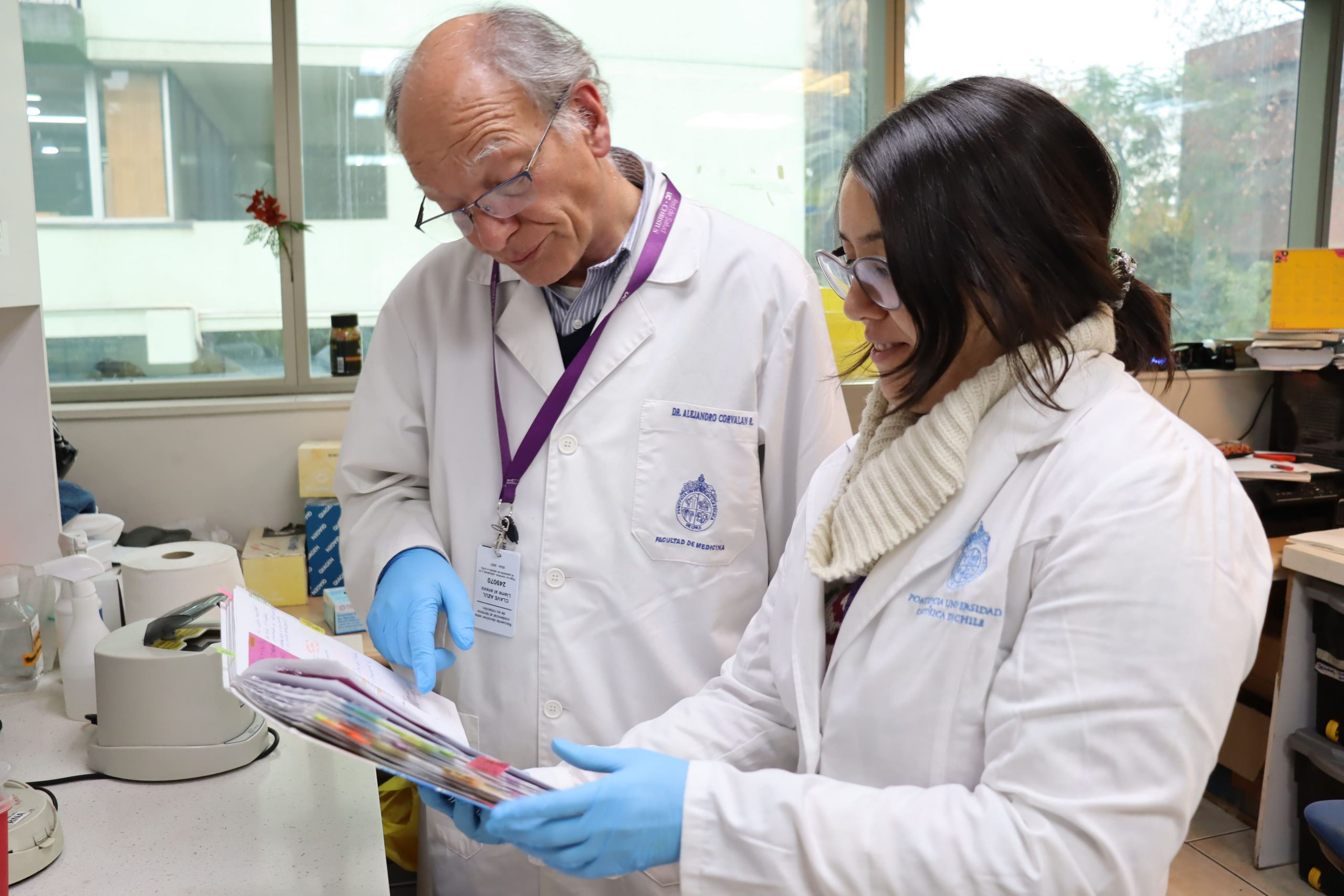Entrevistas
Dr. Alejandro Corvalán asume como nuevo subdirector de ACCDiS
- julio 25, 2024
- Publicado por: ACCDIS
- Categoría: News Noticia destacada

Dr. Alejandro Corvalan, Professor at the Pontificia Universidad Católica de Chile (PUC) and Principal Investigator of the Advanced Center for Chronic Diseases (ACCDiS ), has been appointed as the new deputy director of this center. With more than 20 years dedicated to translational cancer research, Dr. Corvalán has made important scientific contributions both in Chile and abroad.
His research focuses on gastric cancer, the leading cause of death from cancer in Chile, with an approach characterized by combining data mining, clinical cohorts, and models in vitro. In particular, his studies on hereditary aspects of gastric cancer have made it possible to discover new pathological variants at the germline level and to translate this knowledge into the public system. In the field of infectious agents, Dr. Corvalan has characterized the role of the Epstein-Barr virus in gastric cancer, identifying Latin America-specific viral strains. His research has also led to the identification of liquid biopsy biomarkers for the non-invasive diagnosis of gastric cancer.
Throughout his career, Dr. Corvalan has published more than 120 scientific articles and trained more than 20 undergraduate and graduate students. In addition, he has been awarded more than 15 national and international research projects and has 5 patents approved in Chile, with 3 of them approved in the United States as well. He has received several awards, including the «Chilean Academy of Medicine Award 2014», the «National Innovation Award of Chile 2011 Health Category (AVONNI)” and “Oncologist of the Year 2016”, among other achievements.

Collaborations that led to the founding of the Advanced Center for Chronic Diseases
In 2010, Dr. Corvalan initiated a collaboration with Dr. Catterina Ferreccio, also a Professor at PUC, in which they evaluated the efficacy of the liquid biopsy biomarker Reprimo for the non-invasive diagnosis of gastric cancer (Fondef D09I1137). This biomarker was applied to 1500 healthy volunteers from the Maule Region and was pivotal for the original proposal to establish the Maule Cohort (MAUCO). This population cohort was developed by Dr. Ferreccio, who served as a Deputy Director of ACCDiS until 2024. During the same period, Dr. Corvalan began a collaboration with Dr. Andrew Quest, a Professor at the University of Chile who later became a Principal Investigator at ACCDiS. «ACCDiS has fostered and expanded these collaborations both nationally and internationally», said Dr. Corvalán.
In 2014 he met Dr. Marcelo Kogan, also an ACCDiS Principal Investigator. Together, they transformed the Reprimo molecular biology assay into nanoparticle-based methods, which has increased its sensitivity by at least 50 times. This breakthrough was crucial to achieving the sensitivity necessary for the early detection of gastric cancer. “This collaboration would never have been possible if I did not belong to the Center”, said Dr. Corvalán.

Contributions to public policies and civil society
During his three terms as the President of the Chilean Cooperative Oncology Research Group (GOCCHI) (2015-2020), Dr. Alejandro Corvalán participated in the drafting of the new Gastric Cancer Clinical Guidelines (2020) – MINSAL and in the discussion of the Cancer Law, promulgated on August 26, 2020. Dr. Corvalán highlighted the work carried out by ACCDiS together with EXPLORA – Region Metropolitan Norte, saying «Not only has ACCDiS contributed to expanding an ecosystem for the study of chronic diseases, but has also educated the community about chronic diseases and their prevention».
To conclude, Dr. Corvalán highlighted the multidisciplinary nature of ACCDiS. «During these 10 years, ACCDiS has managed to bring together the two most important universities in Chile – Pontificia Universidad Católica de Chile and Universidad de Chile. We exist between the two institutions, respecting the culture of each one and building bridges through collaborations «. In addition, Dr. Corvalan took the opportunity to mention that this year, the Universidad Catolica del Maule was incorporated as an associated institution, with whom they will continue to develop transdisciplinary research for the prevention of chronic diseases.
